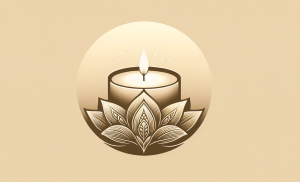Improving Sleep Quality With Aromatherapy: 75% Effectiveness
If you’ve ever struggled with getting a good night’s sleep, then you’ll be thrilled to learn about the incredible power of aromatherapy. A recent study has found that using aromatherapy techniques can significantly improve the quality of your sleep, with an impressive effectiveness rate of 75%. So, if you’re tired of tossing and turning all night, keep reading to discover how certain scents can help you achieve the peaceful slumber you’ve been longing for.
The Importance of Sleep Quality
Effects of Poor Sleep Quality
Having a good night’s sleep is essential for overall well-being and functioning. When you have poor sleep quality, it can impact various aspects of your life. Lack of sleep can leave you feeling groggy, irritable, and unable to concentrate during the day. It can also affect your mood, memory, and cognitive abilities. Furthermore, poor sleep quality has been linked to an increased risk of developing chronic health conditions such as obesity, diabetes, and cardiovascular diseases. It is important to address poor sleep quality in order to maintain optimal health and well-being.
Benefits of Improving Sleep Quality
Improving sleep quality has numerous benefits that positively impact your physical, mental, and emotional well-being. When you consistently experience restful sleep, you wake up feeling refreshed and energized, ready to take on the day. A good night’s sleep promotes better cognitive functioning, enhances memory consolidation, and improves overall mental clarity and focus. Adequate sleep is also crucial for maintaining a healthy immune system, helping your body fight off illnesses and infections more effectively. Additionally, quality sleep plays a vital role in regulating hormones, supporting weight management, and promoting overall physical health. It is evident that improving sleep quality can have a profound positive impact on your overall quality of life.
Introduction to Aromatherapy
Definition and Principles of Aromatherapy
Aromatherapy is a holistic healing practice that utilizes the natural scents and properties of essential oils to promote physical, mental, and emotional well-being. It is based on the principle that certain essential oils, derived from plants, have therapeutic effects when inhaled or applied topically. These essential oils contain aromatic compounds that can stimulate our olfactory system and affect our brain’s limbic system, which is responsible for emotions, memory, and behavior. Aromatherapy is commonly used as a complementary therapy to support various health concerns, including sleep improvement.
Historical Use of Aromatherapy for Sleep Improvement
The use of aromatherapy for sleep improvement dates back thousands of years. Ancient civilizations, including the Egyptians, Greeks, and Chinese, recognized the power of aromatic plants in promoting restful sleep. They used various plant extracts and oils for their calming and sedative properties. Historical texts and records document the use of essential oils such as lavender, chamomile, and bergamot for sleep enhancement purposes. These traditional practices continue to be relevant in modern aromatherapy techniques and have paved the way for scientific research on the effectiveness of aromatherapy in improving sleep quality.
Understanding Aromatherapy for Sleep
Mechanisms of Action
Aromatherapy for sleep improvement works through multiple mechanisms of action. When you inhale essential oils, the aromatic compounds stimulate the olfactory receptors in your nose, sending signals to your brain’s limbic system. This stimulation can have a direct effect on your emotions, helping to induce relaxation and reduce anxiety and stress levels. The inhalation of certain essential oils can also help regulate your autonomic nervous system, promoting a state of calm and relaxation conducive to sleep. Additionally, when essential oils are applied topically, they can be absorbed through the skin and enter the bloodstream, further enhancing their therapeutic effects.
Types of Essential Oils Used for Sleep Improvement
There are several essential oils that are commonly used in aromatherapy for sleep improvement. Each essential oil possesses unique properties and scents that contribute to their sleep-enhancing effects. Lavender essential oil is one of the most popular choices for promoting relaxation and improving sleep quality. Its soothing aroma has been scientifically proven to reduce anxiety and improve sleep duration and quality. Similarly, chamomile essential oil is known for its calming properties and is often used to alleviate insomnia and promote a sense of tranquility. Bergamot essential oil, with its citrusy and uplifting scent, can help reduce stress and anxiety, contributing to a more restful sleep experience.
Research on Aromatherapy and Sleep Quality
Overview of Scientific Studies
Scientific research has been conducted to explore the effectiveness of aromatherapy in improving sleep quality. These studies utilize various methodologies, including subjective sleep assessments, objective measurements, and psychometric evaluations. The aim is to provide empirical evidence regarding the impact of aromatherapy on sleep parameters such as sleep latency, sleep duration, and sleep quality.
Effectiveness of Aromatherapy on Improving Sleep Quality
The research on aromatherapy and sleep quality indicates promising results. A meta-analysis of multiple studies found that aromatherapy interventions consistently showed a statistically significant improvement in sleep quality compared to control groups. The use of essential oils such as lavender, chamomile, and bergamot demonstrated efficacy in reducing sleep difficulties, improving sleep duration, and enhancing overall sleep quality. It is important to note that individual responses to aromatherapy may vary, and it may take some experimentation to find the essential oil or combination of oils that works best for you.
Choosing the Right Essential Oils
Lavender Essential Oil
Lavender essential oil is widely recognized for its calming and sedative properties. It has a pleasant floral scent that helps promote relaxation and reduce anxiety. Lavender essential oil is a popular choice for improving sleep quality because of its scientifically proven ability to increase sleep duration and improve subjective sleep quality. It can be used individually or in combination with other essential oils to enhance its effects.
Chamomile Essential Oil
Chamomile essential oil is known for its gentle and soothing properties. It has a warm, fruity aroma that promotes relaxation and helps alleviate insomnia. Chamomile essential oil is often used to reduce anxiety and stress, allowing for a more peaceful sleep experience. It can be diffused in the bedroom or applied topically in diluted form to enhance its sleep-enhancing benefits.
Bergamot Essential Oil
Bergamot essential oil is derived from the peel of the bergamot orange fruit and has a citrusy, refreshing scent. It possesses uplifting and mood-enhancing properties, making it an excellent choice for reducing stress and anxiety before bedtime. Bergamot essential oil can help create a calm and peaceful environment conducive to restful sleep. It can be diffused or used in a topical blend to enhance its sleep-promoting effects.
Methods of Aromatherapy Application
Diffusers
Diffusers are one of the most common methods of aromatherapy application. They work by dispersing essential oils into the air, allowing their aromatic compounds to be inhaled. Diffusers come in various forms, including ultrasonic diffusers, nebulizing diffusers, and heat diffusers. Ultrasonic diffusers use water to create a fine mist that carries the essential oils into the air, while nebulizing diffusers break down the oils into a gas without the use of water. Heat diffusers utilize heat to evaporate the oils and disperse their scent. Diffusing essential oils in the bedroom creates a soothing and fragrant atmosphere that can promote relaxation and better sleep.
Topical Application
Topical application involves applying essential oils directly to the skin, typically in diluted form. The most common areas for application include the wrists, temples, and the back of the neck, where the skin is relatively thin and easily absorbs the oils. Before applying essential oils topically, it is important to dilute them with a carrier oil, such as coconut oil or jojoba oil, to prevent skin irritation. This method allows for the direct absorption of essential oil compounds into the bloodstream, facilitating their therapeutic effects on sleep quality.
Inhalation Techniques
Inhalation techniques involve directly inhaling the scent of essential oils to experience their therapeutic benefits. This can be done by placing a few drops of essential oil on a tissue or cotton ball and inhaling deeply, or by using inhalers specifically designed for essential oil use. Inhalation techniques are convenient and can be carried out anywhere, making them a practical choice for promoting relaxation and reducing stress levels throughout the day, ultimately contributing to better sleep quality.
Combining Aromatherapy with Other Techniques
Creating a Bedtime Routine
Incorporating aromatherapy into a bedtime routine can enhance its effectiveness in improving sleep quality. Establishing a consistent routine signals your body that it’s time to wind down and prepare for sleep. Begin by engaging in relaxing activities such as reading a book, taking a warm bath, or practicing gentle stretches or yoga. As part of your routine, diffuse essential oils known for their sleep-enhancing properties or apply them topically to targeted areas. The combination of soothing activities and aromatherapy can create a calming environment conducive to restful sleep.
Healthy Sleep Environment
In conjunction with aromatherapy, creating a conducive sleep environment is essential for optimizing sleep quality. Make sure your bedroom is dark, quiet, and at a comfortable temperature. Invest in a supportive mattress and pillows to ensure proper spinal alignment and reduce discomfort. Remove electronic devices that emit blue light, as this can suppress the production of the sleep hormone melatonin. Additionally, consider implementing relaxation techniques such as meditation or gentle stretching before bed. By combining aromatherapy with a healthy sleep environment, you can maximize the effectiveness of both approaches in promoting restful sleep.
Safety Considerations and Precautions
Dilution Ratios
When using essential oils topically, it is crucial to dilute them properly with a carrier oil. Essential oils are highly concentrated and can cause skin irritation or sensitization if used undiluted. A general guideline is to use a dilution ratio of 1-2% essential oil to carrier oil for adults. For example, if using 10 drops of essential oil, mix it with 1-2 tablespoons of carrier oil. For children, the dilution ratio should be even lower, between 0.25-0.5%. Always perform a patch test on a small area of skin before applying essential oils topically to ensure there is no adverse reaction.
Avoiding Certain Essential Oils
While essential oils can offer numerous benefits, there are some that should be avoided or used with caution, especially when it comes to promoting sleep. Citrus essential oils such as lemon and grapefruit are known for their invigorating and energizing properties, making them more suitable for daytime use. Similarly, stimulating oils like peppermint or eucalyptus may interfere with sleep rather than aid it. It is essential to choose essential oils known for their calming and sedative effects when using aromatherapy for sleep improvement.
Consulting with a Healthcare Professional
If you have any underlying health conditions or are taking medications, it is advisable to consult with a healthcare professional before incorporating aromatherapy into your sleep routine. They can provide personalized recommendations and guide you on any potential interactions or contraindications with your current health status or medications. Additionally, if you experience any adverse reactions or discomfort from using essential oils, discontinue use and seek medical advice.
Tips for Maximizing Aromatherapy’s Effectiveness
Using High-Quality Essential Oils
To ensure the best results when using aromatherapy for sleep improvement, it is important to use high-quality essential oils. Look for oils that are 100% pure, organic, and sourced from reputable suppliers. Quality assurance certifications such as USDA organic or GC/MS testing can provide assurance of the oil’s purity and potency. Investing in high-quality oils ensures that you are receiving the full therapeutic benefits and minimizing potential risks or adulteration.
Proper Storage of Essential Oils
Proper storage of essential oils is essential for maintaining their potency and extending their shelf life. Essential oils should be stored in dark, glass bottles in a cool, dry place away from direct sunlight, heat, and moisture. Exposure to light, air, and heat can degrade the oils and diminish their effectiveness over time. By storing your essential oils correctly, you can preserve their aromatic properties and maximize their efficacy.
Consistency in Application
Consistency is key when using aromatherapy for sleep improvement. Establishing a regular routine and incorporating aromatherapy techniques into your daily or nightly rituals can yield the best results. Consistently using essential oils through inhalation techniques, topical application, or diffusing can help your body and mind associate these scents with relaxation and better sleep. Make aromatherapy an integral part of your self-care routine, and you will reap the benefits of improved sleep quality.
Conclusion
Improving sleep quality is crucial for overall well-being, and aromatherapy offers a natural and effective approach to supporting a restful night’s sleep. The historical use of essential oils for sleep enhancement, coupled with scientific research demonstrating their efficacy, validates aromatherapy as a valuable tool. By understanding the mechanisms of action, choosing the right essential oils, and utilizing appropriate application methods, you can harness the power of aromatherapy to improve sleep quality. Additionally, combining aromatherapy with other techniques such as creating a bedtime routine and maintaining a healthy sleep environment can further enhance its effectiveness. With proper safety considerations, storage practices, and consistency in application, you can fully maximize the benefits of aromatherapy for a rejuvenating and restorative sleep experience. So why not embrace the power of aromatherapy and embark on a journey towards better sleep and improved well-being?

















